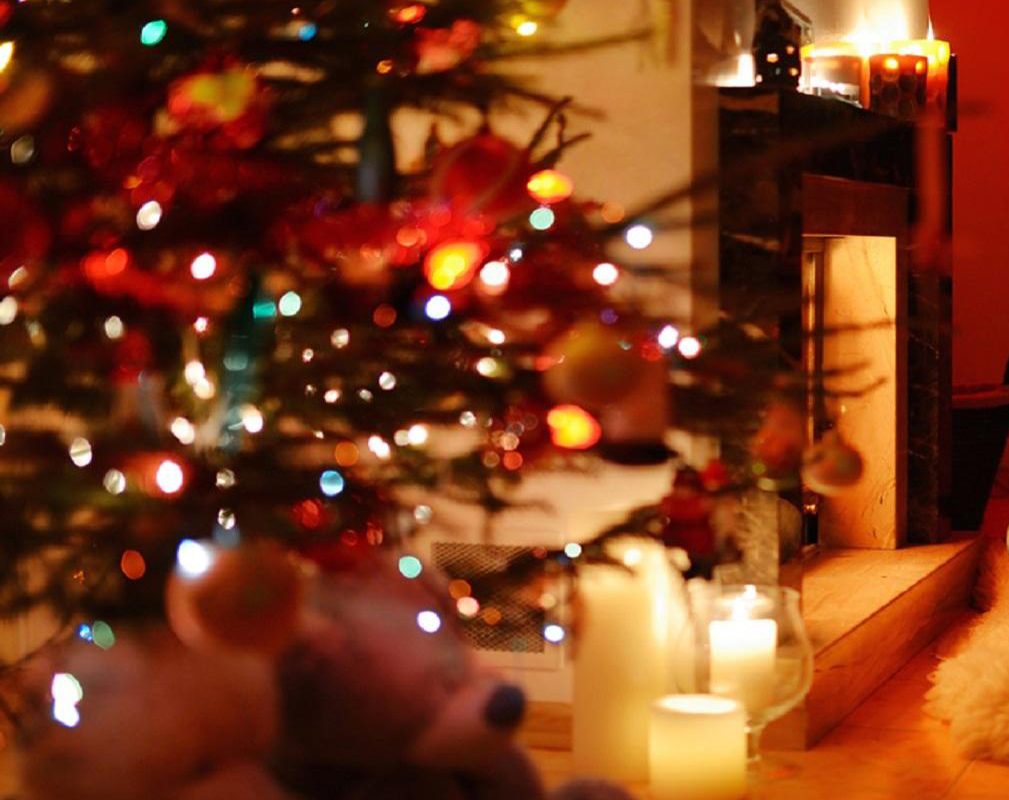
A reflection by Fr. Dave Warren, S.F.M. on the Second Sunday of Advent. First Reading: Isaiah 11.1-10; Second Reading: Romans 15.4-9; Gospel: Matthew 3.1-12
There’s a lot of nostalgia at Christmas. This nostalgia finds classic expression in songs such as “I’ll be home for Christmas,” recorded by Bing Crosby in 1943 to honour soldiers who were fighting overseas and who longed to be home for Christmas.
All of us want to be home for Christmas. Advent is a journey home for Christmas. Advent is a journey home to ourselves and we are far from home.
Our deepest desires are to love and be loved, to be our true selves, to experience inner peace, to live and not merely to survive. We are far from the fulfillment of our deepest desires. We are far from home.
The world, too, is far from home. The world is far from the fulfillment of its deepest desires, desires that correspond to ours: that all people might love and be loved, that our world might be the best it can be, that all people might live in peace, that all people might live and not merely survive.
Isaiah beautifully expresses the world’s desire for peace in today’s second reading:
“The wolf shall live with the lamb,
and the leopard shall lie down with the kid,
the calf and the lion and the fatling together,
and a little child shall lead them.
The cow and the bear shall graze,
their young shall lie down together;
and the lion shall eat straw like the ox.” (Isaiah 11.6-7)
The world has beautiful desires but fails to achieve them. To paraphrase St. Paul, “We do not do the good we want, but the evil we do not want is what we do (Romans 8.19). We are far from the fulfillment of our deepest desires. We are in exile, far from home, and we can’t get back on our own.
The Good News is that God delivers us from exile. God takes us home. God takes us home—and not just after we die. God begins to take us home here and now.
Exile is one of the major themes of the Bible. First of all, Adam and Eve are in exile from the Garden of Eden. Then the descendants of Abraham are in exile in Egypt. Later, the People of Israel are in exile in Babylon. The Good News is that God delivers us from exile. God takes us home. God takes us home—and not just after we die. God begins to take us home here and now.
The journey home begins in the wilderness. The journey from Egypt to the Promised Land and from Babylon to the Promised Land passes through the wilderness. Our journey passes through the wilderness—the empty place in our life, the place of pain and longing, the place of broken dreams, the place of brokenness. The wilderness is the place where we experience our need for God. The wilderness is also the place where God comes to us. It’s no accident that John the Baptist appears in the wilderness.
The people of Jerusalem and all Judea went out to the wilderness (Matthew 3.5). We don’t have to look for the wilderness. The wilderness finds us.
This journey through the wilderness happens to all of us sooner or later. We may lose our job, our investment portfolio goes south, our business fails, our health suddenly fails, our girlfriend or boyfriend leaves us, our marriage breaks up, a loved one dies, our kids disappoint us, and we disappoint ourselves. Despite our best efforts, we fail to make the grade and life doesn’t turn out the way we hoped it would.
Advent invites us to acknowledge the wilderness in our life—in our life as individuals and in our life as one human family. God comes to us in the empty places. Often we are pretending to be somewhere else, attempting to run away and distract ourselves from the emptiness in our life. We try to escape in busy-ness, in trivial pursuits, in passing pleasures, in excessive amusement and entertainment, and in excessive socializing.
Advent is a time to make friends with the emptiness. Advent is a time for some silence and solitude. Sadly enough, there’s no harder time than Advent for silence and solitude.
Advent is a time to make friends with the emptiness. Advent is a time for some silence and solitude. Sadly enough, there’s no harder time than Advent for silence and solitude. The season is filled with frantic preparation for Christmas and with pre-Christmas parties. The spirit of the season is expressed well in the advertisement for Jack Daniel’s Tennessee Whiskey, which reads: “We find silent nights to be a bit overrated.”
Actually, a few more silent nights might be good for our souls. A few more silent nights might help us to enter into Advent. Advent is a time to make friends with the emptiness in our life. This emptiness is a holy emptiness. It is the emptiness of the crib awaiting the coming of the newborn Christ. Of what use is it to celebrate the birth of Jesus unless He is born again in us? And God’s promise is that Jesus will come to birth in us.
There’s a lot of nostalgia at Christmas. But Christmas is not about nostalgia. Christmas is about hope. Nostalgia looks back; hope looks forward.
“I’ll be home for Christmas” ends with the lyrics, “…if only in my dreams.” God will deliver us from our exile. God will take us home for Christmas—and not in some dreamworld either.

